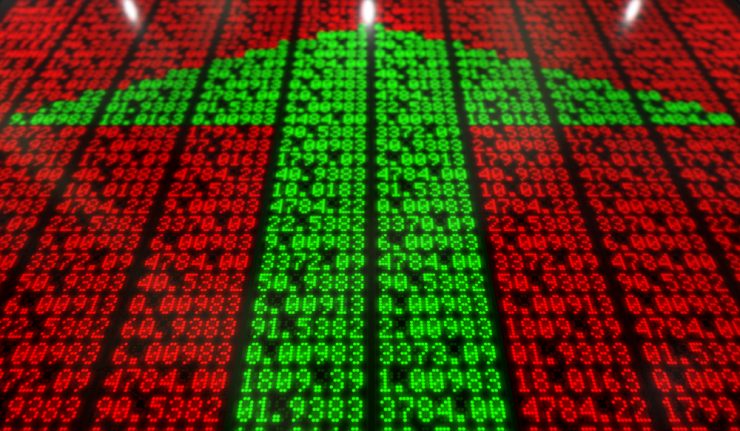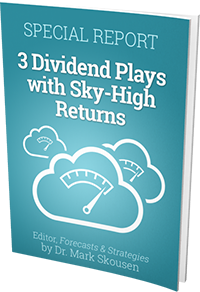What are NFTs? Known as non-fungible tokens (NFTs), they are digital assets that have been minted and stored on a blockchain that facilitates recording and tracking transactions in a business network.
Cryptocurrencies and other digital assets have skyrocketed in price at times but also are vulnerable to pullbacks from volatile trading. Some investors may wonder if such assets are in the midst of an unsustainable bubble or ushering in a new long-term investment asset class.
Non-fungible tokens rose to $44 billion in value last year, and are recorded and transferred on a shared ledger, known as a blockchain. For example, NFTs have begun to gain appeal among artists due to their applications in the business world.
What Are NFTs? How Do They Differ from Stocks and Cryptocurrencies
The difference between NFTs, stocks and cryptocurrencies is that stocks and cryptos are fungible, meaning each unit is just like the other. One share of Apple (NASDAQ:AAPL) is the same as another share of that stock. The same principle applies to Bitcoin (CRYPTO:BTC).
Since NFTs are non-fungible, the token that is bought is a unique item not directly replaceable by anything else. NFTs can be a representation or original creation of many things such as a photograph, music, work of art, a game, etc.
The main use of NFTs currently seems to be as a digital form of collectibles. The process of creating a single NFT or a limited series of NFTs is known as minting. The idea is not that the digital asset would be the only copy in existence, but rather that it has been minted as the first edition, so to speak.
For instance, “The Wealth of Nations” is a key book in economics by Adam Smith, who championed the idea that markets tend to work best when the government leaves them alone. The first edition is worth more than the following ones, since collectors value that version most highly due to its historical significance. That same concept is similar to NTFs.
Another user of NTFs is the NBA, said Tim Skousen, co-editor of the TNT Trader advisory service that has a cryptocurrency portfolio.
“The NBA is minting NFTs of NBA highlights,” Skousen said. “And yet anyone can watch the highlights anytime. Why is a Lebron James highlight NFT valuable? Because it’s attached to a non-fungible crypto token that is locked on a blockchain, and that particular digital asset cannot be copied, despite the fact that anyone can watch the highlight at any time. Much like anyone can read “The Wealth of Nations” at any time, whether it’s the first edition or not. It’s taking a digital asset and making it the first or number 3 out of only 8 NFTs made of a certain digital asset. It’s the digital version of a Michael Jordan rookie card.”
In addition, NFTs are typically purchased and sold using a cryptocurrency or digital token that is accepted on that particular blockchain. Once an NFT is created on a blockchain, all of its subsequent sales are tracked and recorded. In addition, each token’s metadata cannot be duplicated or replicated.
Furthermore, an NFT cannot be divided into smaller units or used in the same way as a fungible convertible cryptocurrency such as Bitcoin (CRYPTO:BTC). Convertible cryptocurrency has an equivalent value in real currency or acts as a substitute for real currency. However, an NFT’s value is based solely on what someone is willing to pay a seller to buy it.
What Are NFTs and How Are They Created?
Anyone can turn a digital asset into an NFT and sell it on a marketplace. Artists, musicians, filmmakers, writers, etc can monetize their work as NFTs if they can guarantee its authenticity.
The process is simple and operates as follows:
- Have a crypto wallet opened and funded. It needs to be funded because there are computing fees involved with creating the NFT.
- Press on the “create” button within the marketplace and upload the work.
- List the NFT for sale either for a fixed price or for sale via auction.
What are NFTs and How Are They Sold?
NFTs are marketed through online marketplaces, including OpenSea, Nifty Gateway, SuperRare and MakersPlace. All NFT platforms host blockchain technology.
The OpenSea platform provides a general marketplace that hosts 97% of all NFT transactions. However, other NFT marketplaces are more specialized and cater to particular types of NFTs, such as visual arts or sports. It should also be known that marketplaces charge a fee for NFT sales.
To connect to the NFT platform, an NFT participant needs a crypto wallet, such as MetaMask. Once the participant has a crypto wallet, he or she can transfer the type of token needed to buy the NFT and can hold NFTs in the wallet.
To sell a digital asset, the piece needs to be uploaded to the marketplace of one’s choice, if that marketplace supports the blockchain of a given NFT. Once the NFT is uploaded, the marketplace will verify the asset. After an NFT is sold, the marketplace will transfer the asset from seller to buyer along with funds, minus the listing fee and other blockchain computing expenses.
What Are NFTs and What Can Be Done With Them?
Once an NFT is purchased, the digital asset belongs to the buyer to use as he or she pleases. Some people display their digital artworks on large monitors. Other people can buy virtual real estate (via an NFT) that can be used to build virtual galleries or museums. Yet other owners are interested in the investing appeal of NFTs. Owning an asset could be used to generate income, depending on the uniqueness of the piece.
“I’m not a fan of NFTs in their current form and would not promote them as a good investment,” Skousen said.
How are NFTs Taxed?
There is no specific guidance from the U.S. government as to how NFTs are taxed. However, most tax experts agree that when a creator sells an NFT on a platform, the profits should be considered ordinary income and subject to a rate as high as 37%. Investors who buy the tokens owe capital-gains taxes if they used another cryptocurrency for the purchase and the sale.
Beyond that, the rules are murky. There are questions about whether tokens should be taxed like art “collectibles,” which come with a long-term capital-gains rate up to 28%. That compared to 20% for most cryptocurrencies and stocks. The infrastructure bill President Biden signed into law last year will make it harder for people to hide digital assets, but the Treasury Department has not said whether that includes NFTs.
Are NFTs the Right Investment?
The NFT movement is new and is an early demonstration of the potential cryptos have to make the digital economy work for more people. Creating and selling digital assets might make a lot of sense for creators. But when it comes to buying NFTs for their value as a collectible, they are a speculative investment. The value is uncertain and will fluctuate based on demand for the work itself.
However, if you have an eye for art, music, etc., and you enjoy collecting, investing in NFTs might make sense for you. When making purchasing decisions it is important to look for the creator of the asset, how unique the piece is, the history of the asset’s ownership and whether an asset could be used to generate income.
Although NFTs are very popular at the moment, digital assets could indeed lose value at some point in the future. Therefore, it is important to weigh the risks and diversify your investments.
Adam Johnson is an editorial intern who writes for www.stockinvestor.com.



![[instant messaging via tablets and phones]](https://www.stockinvestor.com/wp-content/uploads/shutterstock_125411345.jpg)
